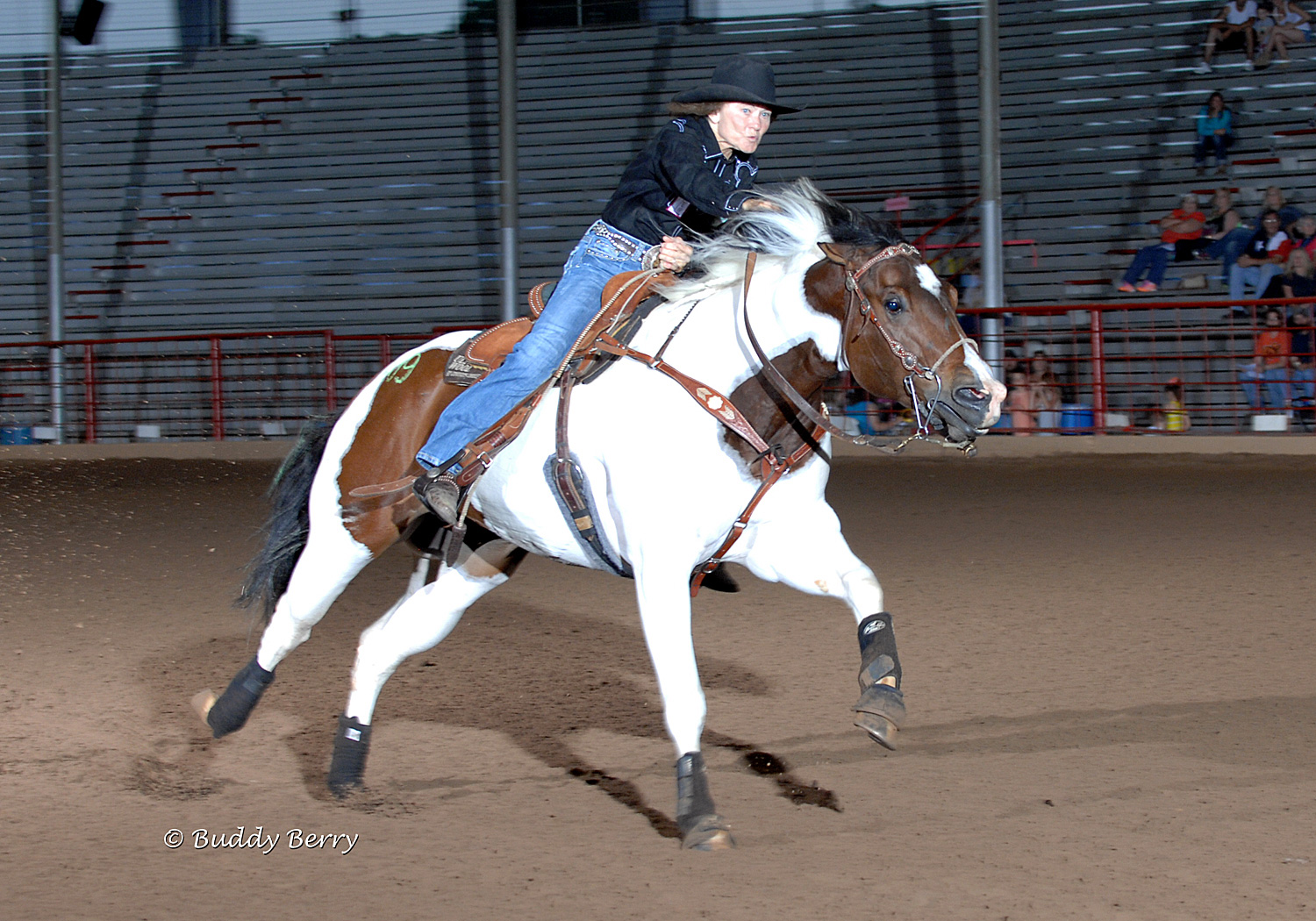Growing up on a farm in Indiana, I acquired a love for horses and an addiction to training them. Having Perthes disease at the age of 4, I was not able to bear weight on my hip for 4 ½ years. I had a pony to carry me around.
When the disease took its course and I was able to move around on my own, my father acquired a young Paint gelding to train as my own. From there, it became my career. While this Paint gelding became a seven-year consecutive winner in my local 4-H group, I continued to train my own horses for competition. Through this process, I made my own guidelines for training. I discovered that repetition and bonding were two major keys to my success.
When I say repetition, I don’t mean super sweaty saddle pads, whips and spurs. A horse learns his job through slow work, which includes positioning, rating a barrel and getting away from a barrel in the quickest way he can. This meaning the horse chooses his own style of knowing where to make all the moves because he repetitively has learned where his body is supposed to be. This is a daily process—not a week on and two weeks off. This process instills confidence and trust in what you are asking him to do; it is what I call “basics.”
When a horse gets his basics down pat, you can return to basics as the foundation to correct any problem that arises. If a horse has no soundness issues, I’m confident almost all problems can be resolved.
As far as the bonding aspect of training, I am initiating reward and discipline, give and take. I consider a young horse in training like a child: they need to understand right and wrong. When my horses do well, I reward them with kindness; a pat on the neck or some other form of approval. If a horse makes a mistake, I will stop them, back a few steps and repeat the maneuver a couple of times.
Your confidence, horsemanship and mental attitude become your own tools for success. All three fall together as you get farther into the training process. Your body responds from repetition as well as the basics you have taught your horse. Together, a bond is formed.
If you barrel race, you do it because you love to do it, so it is senseless to put yourself in nervous state before you run. If you have done all your homework, it should be fun. Never dwell on a bad run. Mistakes happen; correct them with slow work and emphasize the area where the mistake was made. Eventually, when your horse is seasoned, he will become solid and consistent.
Whatever level you fall into on a 4- or 5-D barrel race, remember to have fun and do the best you can do. If you are a 4D, strive to become a 3D and climb that ladder to the top.
Be sure to maintain your horse in every way. Get him on a feeding, deworming, shoeing and veterinary check-up program. There are many things you can do to make your horse comfortable—that is very important to me. Be considerate of hauling conditions, too. I stop every five hours to unload my horses, walk them a bit and give them a drink, and I keep hay in front of them to eat. This keeps stomach acid down and keeps the gut moving. I also give electrolytes to keep them drinking.
As in most cases, patience, determination, hard work and consistency play a large part of success in the sport of barrel racing.
##
Mary Burger is a professional barrel racing trainer located in Pauls Valley, Oklahoma. She is a three-time National Finals Rodeo qualifier, and won the world title in 2006. This year, Mary has seen success with Cash Roll Lineage, a 2010 bay tobiano mare by Judys Lineage and out of JLC Treasured Cash, who is owned by Debra Richardson of Elmore City, Oklahoma. Including smashing success at a number of futurities, Mary and Cash Roll Lineage have picked up checks and prizes through the Paint Barrel Racing Incentive Program.





